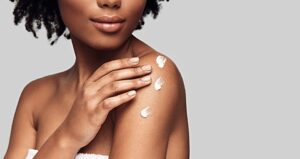
Micro-Needling – Make Your Skin Young And Glowing Again
Clear and younger-looking skin is everyone’s dream. People often try cosmetic products and makeup to cover up scars, acne, and wrinkles. But this does not solve the problem completely. Instead, some ways can solve your problem from the inside. The beauty treatment micro-needling from https://www.beyondmedicalspa.net/ can help you get clear skin. This technique increases the synthesis of collagen. Collagen gives a smooth and firm look to your skin.
What is micro-needling?
Collagen is one of the abundant and useful Proteins in your body. It helps to keep the skin elastic and smooth. It reduces the dead skin cells on your skin and adds structure to the phase. With age production of collagen is reduced. This leads to the formation of wrinkles and loose skin.
Micro-needling uses needles to create tiny holes in the skin, which signals the body to produce collagen and elastin. This helps you improve the skin’s texture, giving it a fresh look. This promotes the formation of new skin cells. So, micro-needling is not a quick process. In some micro-needling variations, dermatologists use vitamin C to improve the overall effect of the process.
Benefits of micro-needling
- It helps to reduce the wrinkles
The prime benefit of using micro-needling is reducing the aging of the skin. The process can take a little time to show the results but effective treatment. It reduces wrinkles and brings a fresh look to the skin.
- It helps to remove the scars
The process can help you to remove the scars left on the skin due to acne or some injury. This gives a clearer look to your face.
- It helps you to reduce the damage caused by the sun
Hyperpigmentation, uneven skin tone, and age spots result from exposure to the sun. Micro-needling will help you with such conditions. It leads to the production of new cells, which helps with damage caused by the sun.
- It helps to improve acne
Micro-needling helps to improve the effectiveness of topical. So, when you apply creams for acne after the treatment, it gets absorbed properly. This helps you to reduce acne.
Continue Reading










